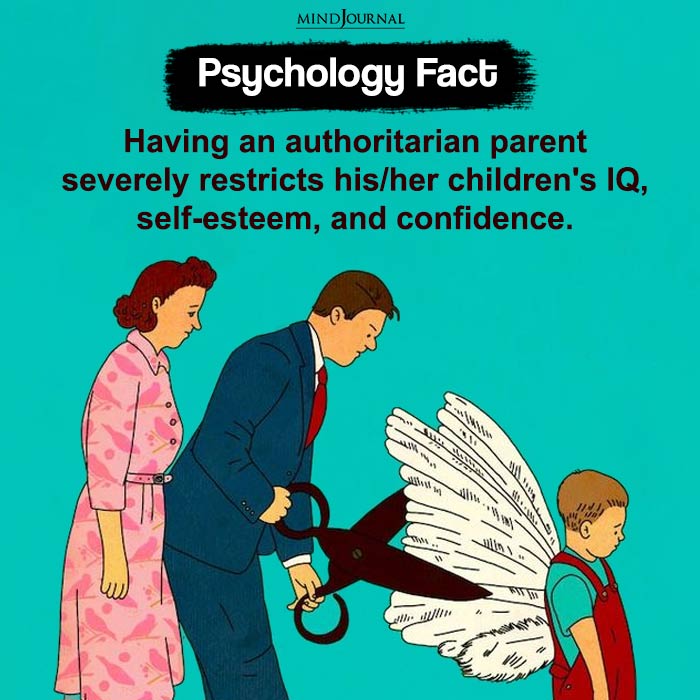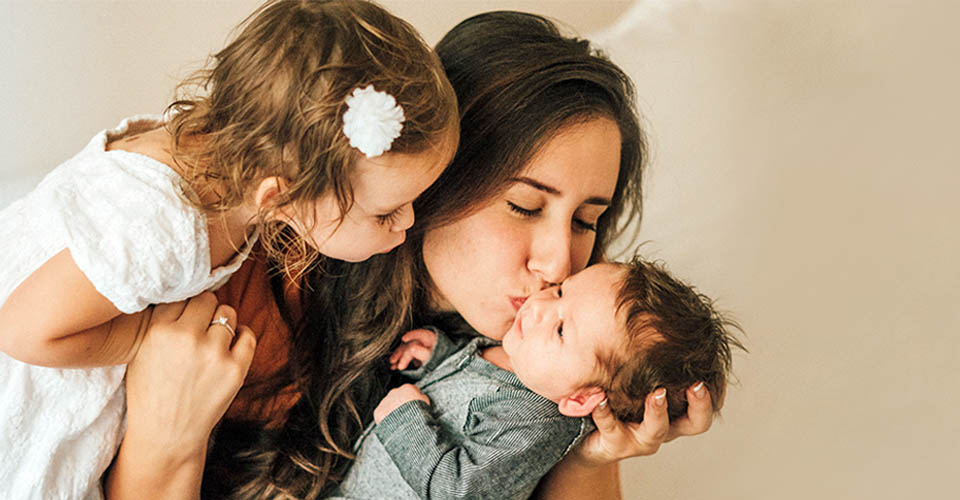What is authoritarian parenting? The concept might sound familiar, perhaps bringing to mind images of strict rules and high expectations.
However, authoritarian parenting isn’t merely about structure; it can significantly impact a child’s development and well-being.
Join us as we uncover the various aspects of authoritarian parenting, offering insights into its potential impact on a child’s behavior and mental well-being.
By understanding both its positives and negatives, you can make informed decisions about your parenting style and create a nurturing environment that helps your child thrive.
What is Authoritarian Parenting?
Authoritarian parenting is a strict and controlling approach characterized by high demands and low responsiveness. In this style, parents often prioritize obedience and discipline over nurturing and understanding.

They establish a plethora of rules and guidelines but often forego discussions or considerations of their children’s viewpoints or feedback regarding these regulations.
Despite the seemingly stern stance, it’s crucial to recognize what is authoritarian parenting method is because most authoritarian parents have well-intentioned motives.
They genuinely believe that their parenting style will cultivate children who evolve into competent, versatile, and accomplished individuals within society. Nevertheless, this approach often carries unintended consequences.
Moreover, this emphasis on actions and outcomes can impede a child’s innate capacity to make choices, potentially affecting their self-esteem.
To better understand what is authoritarian parenting let us look at certain characteristics of authoritarian parenting.
Read More: What Is Parenting? 5 Steps To More Effective Parenting
Characteristics Of Authoritarian Parents
The authoritarian parenting style exhibits distinctive characteristics that define their parenting style. This approach is marked by strictness, control, and an emphasis on obedience.
Following are some of the characteristics of authoritarian parents:
- High Expectations
- Strict Rules and Regulations
- Limited Flexibility
- Parent-Centric Decision Making
- Limited Autonomy
- Lack of Discussion
- Punitive Discipline
- Emphasis on Obedience
- Controlled Emotional Expression
- Focus on External Success
A study conducted in 2018 examined parental personalities and parenting styles. identified authoritarian parenting, characteristics of authoritarian parents, parental personality traits, attachment styles, the child’s temperament, and levels of social support. The study despite having certain positive impacts the majority of the results presented disadvantages of authoritarian parenting.
In order to better understand characteristics let us look at some examples of the authoritarian parenting style.
Read More: What Is Helicopter Parenting? 8 Effects It Has On Adults
Example Of Authoritarian Parenting
Drawing from the characteristics described earlier, the following are some examples of what is authoritarian parenting:
1. Strict Bedtime Routine
An authoritarian parenting style enforces a strict bedtime routine, expecting the child to adhere to the designated time without question.

The parent may not engage in discussions about adjusting the schedule to accommodate the child’s preferences.
2. Imposing Extracurricular Activity
When selecting extracurricular activities, an authoritarian parent makes the decision without involving the child.
In this example of authoritarian parenting, the child may be enrolled in activities based on the parent’s preferences rather than their own interests.
3. Screen Time Regulations
Regarding screen time, an authoritarian parent imposes strict limits on electronic device usage, without room for negotiation.

In this example of authoritarian parenting, the parent may not consider the child’s individual responsibilities or use of technology for educational purposes.
4. Controlling or Restricting Friendships
When it comes to friends, an authoritarian parent may express disapproval or forbid certain friendships without considering the child’s perspective or understanding their social needs.
Understanding these examples is crucial in comprehending the impact of authoritarian parenting on a child’s development and well-being. It also better helps you to understand the signs and the characteristics of authoritarian parents.
Read More: 6 Signs Of Controlling Parenting And The Effects It Has On The Child
Signs Of Authoritarian Parenting
The signs of authoritarian parenting styles are evident through specific behaviors and example of authoritarian parenting presented above.

These signs of authoritarian parenting include:
1. Rigidity and Inflexibility
Authoritarian parents are often uncompromising in their rules and expectations, displaying little willingness to adapt or consider alternative viewpoints.
2. Strict Rule Enforcement
They enforce numerous rules and regulations, often with little room for negotiation or explanation.
3. Lack of Open Communication
Authoritarian parents may discourage open dialogue, making decisions without involving their children or providing minimal explanations.
4. Parent-Centric Decision-Making
Decisions are primarily made by the parents, with limited input from the child, leading to an unequal power dynamic.
5. Punitive Discipline
Discipline is focused on punishments rather than understanding the underlying behaviors, which can result in a fear-based dynamic.
6. Emphasis on Obedience
Compliance and obedience are highly valued, with children expected to follow instructions without questioning.
7. Limited Autonomy
One of the most hurtful signs of authoritarian parenting is a lack of independence. Children’s autonomy is restricted, and they may have little opportunity to make choices or express their preferences.
8. Conditional Love and Approval
Love and approval are often linked to the child’s adherence to rules and meeting parental expectations.
9. Controlled Emotional Expression
Some authoritarian parents discourage emotional expression, particularly negative emotions, believing they should be suppressed.
10. High Expectations
Authoritarian parents have demanding standards for their children’s behavior, academic performance, and achievements.
While characteristics of authoritarian parents may provide structure, they can also result in negative outcomes such as low self-esteem, diminished autonomy, and difficulties in emotional regulation.
These signs help to provide an answer to the question, ‘what is authoritarian parenting?’
Recognizing these signs of authoritarian parenting can help you to reflect on your approach and consider alternative parenting styles.
Read More: What Are Family Dynamics? 5 Causes, Roles And Its Importance
Disadvantages Of Authoritarian Parenting
The disadvantages of authoritarian parenting are significant, as its rigid structure and lack of flexibility can hinder a child’s emotional development and independence. Understanding these downsides is crucial in grasping the potential challenges associated with authoritarian parenting style.
Here are some of the disadvantages of authoritarian parenting mentioned below –
1. Emotional Strain
Authoritarian parenting can lead to emotional strain for children. The strict rules and lack of emotional expression within this style may prevent children from developing healthy ways to express their feelings.
This emotional suppression can result in difficulties in understanding and managing emotions, potentially leading to heightened stress and anxiety.
Read More: Child Discipline: 9 Benefits, Types, Impact On Mental Health
2. Low Self-Esteem
Children brought up in an authoritarian environment often tie their self-worth to their ability to adhere to rules and meet parental expectations.

If they fail to meet these high standards, they might develop low self-esteem, struggling with a sense of inadequacy and self-doubt.
Read More: How To Overcome Low Self Esteem And Insecurities: 10 Tips
3. Limited Critical Thinking
The emphasis on unquestioning obedience within authoritarian parenting can hinder a child’s ability to think critically and make independent decisions.
Children raised in this environment might struggle to analyze situations, solve problems, and develop their own viewpoints due to the lack of encouragement for independent thought.
4. Rebellion and Resentment
As children grow, the rigid constraints of authoritarian parenting might lead to feelings of rebellion and resentment.
The lack of autonomy and open communication can push children to rebel against authority figures, often seeking independence in unhealthy ways or becoming more susceptible to engaging in risky behaviors.
The disadvantages of authoritarian parenting show that unless a change or a new style is adopted for parenting, your child has a high possibility of suffering from mental illness in the future.
Read More: Negative Parenting Impacts A Child’s Mental Health
Advantages Of Authoritarian Parenting
Undoubtedly, children raised by authoritarian parents tend to stand out as the most well-mannered individuals in their surroundings. This stems from their awareness that any deviation from expected behavior will result in severe consequences.
However, it’s crucial to acknowledge that the advantages of authoritarian parenting are restricted in scope and duration.
Here are the advantages of authoritarian parenting:
1. Clear Boundaries and Structure
Proponents of authoritarian parenting argue that its clear boundaries and structured environment offer children a sense of predictability and stability.
With well-defined rules and expectations, children often know what is expected of them, leading to a sense of security.
This structure of what is authoritarian parenting can be particularly beneficial in situations where consistency is necessary, such as establishing routines for meal times, bedtime, and homework.
Children can learn to understand the cause-and-effect relationship between their behavior and consequences, which can prepare them for navigating rules and expectations in broader societal contexts.
Read More: How To Discipline Sensitive Children? 5 Science-Backed Strategies
2. Strong Work Ethic and Discipline
Advocates of authoritarian parenting often highlight the emphasis on discipline and hard work that this style instills. With strict rules and expectations, children are encouraged to develop a strong work ethic and a sense of responsibility.
They learn the value of meeting their obligations, completing tasks, and adhering to commitments. This work ethic can extend into academic and extracurricular pursuits, promoting a sense of diligence and determination.
3. Respect for Authority
Authoritarian parenting places a strong emphasis on parental authority, which proponents argue can teach children to respect authority figures and follow rules in various settings.
This can be particularly valuable as children navigate school, engage with teachers, and eventually enter the workforce.
Respect for authority figures is often seen as a valuable trait in social interactions and professional environments, where adhering to rules and working within a structured framework is essential.
Read More: How To Earn Your Child’s Respect: 17 Effective Ways
4. Safety and Risk Avoidance
The strict and protective nature of authoritarian parenting can help shield children from certain risks and dangerous situations.
By adhering to rules and restrictions set by their parents, children may be less likely to engage in risky behaviors, such as experimenting with substances or engaging in unsafe activities.
This approach can provide an additional layer of safety and protection, particularly during the formative years when children are still learning to assess potential dangers.
Critics argue that the strictness and lack of autonomy can hinder children’s development of independent decision-making skills and consider this as disadvantages of authoritarian parenting.
Striking a balance between structure and fostering individual growth remains a critical consideration in parenting, as each child’s needs and temperament are unique as seen from the example of authoritarian parenting.
A Word From Mind Family
It’s crucial for you to understand what is authoritarian parenting as it can help you to avoid them in your approach to parenting.
By recognizing the potential impacts of different parenting styles, you can cultivate an environment that supports your child’s emotional well-being and holistic development.
The example of authoritarian parenting style illustrates the characteristics of authoritarian parents. It also shows how authoritarian parents might handle everyday situations, it’s important to remember that parenting is complex and dynamic.
Strive to create an environment that encourages open communication, respects your child’s autonomy, and fosters their emotional growth.
Remember, you are not alone, and there are resources and support available to help you navigate the joys and challenges of raising happy, healthy, and resilient children.
Frequently Asked Questions (FAQs)
What is authoritarian parenting?
Authoritarian parenting refers to a strict parenting style characterized by rigid rules and control, often with little room for discussion or flexibility. It emphasizes obedience and adherence to parental directives, typically without considering the child’s perspective or feedback.
What are the characteristics of authoritarian parents?
Authoritarian parents exhibit distinct characteristics, including high expectations, strict rules, limited flexibility, parent-centric decision-making, punitive discipline, and an emphasis on obedience, among others.
What is the problem with authoritarian parents?
Authoritarian parenting can lead to issues such as diminished self-esteem, challenges in emotional regulation, tendencies towards rebellion, and obstacles in developing independent cognitive skills among children.
Are authoritarian parents narcissists?
Parents displaying narcissistic traits exhibited a reduced tendency to employ the ideal authoritative parenting style characterized by warmth and responsiveness. Instead, these parents displayed a higher inclination toward adopting non-optimal parenting styles, namely authoritarian and permissive approaches.
What are the hardest years of parenting?
Infancy poses the greatest challenge for certain parents, while for others, it’s toddlerhood. The preschool years are perceived as uniquely demanding by some caregivers.


















Leave a Reply